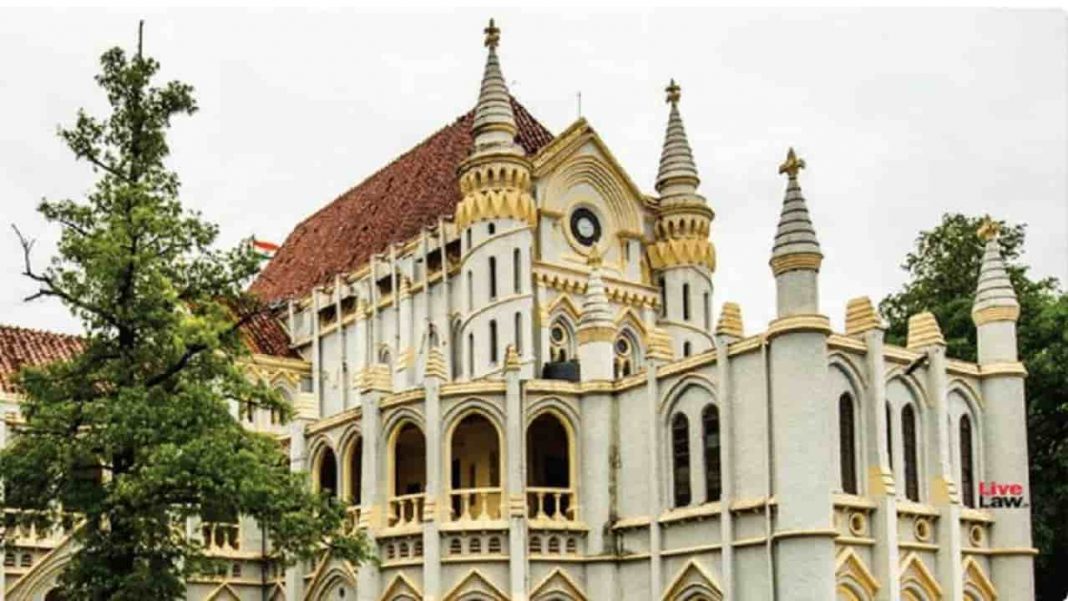While ruling on a very significant legal point pertaining to the Goods and Services Tax (GST) Act, it must be taken note of that the Madhya Pradesh High Court at Jabalpur in a most learned, laudable, landmark, logical and latest judgment titled M/S Technosys Security System Private Limited vs Commissioner Commercial Taxes in Writ Petition No. 13618 and 13667 of 2023 that was pronounced most recently on December 5, 2023 has minced just no words to state succinctly in no uncertain terms which must be definitely always abided that an opportunity of hearing is required to be given, even in those cases where no such request is made but adverse decision is contemplated. It must be noted that this leading case concerned M/S Technosys Security System Private Limited which is a company that was issued a show-cause notice by the Deputy Commissioner of State Tax who is the second respondent. It must be mentioned here that in a grave violation of what is laid down in Section 75(4) of the GST Act, we saw how the authorities without granting the company an opportunity for a hearing flouting the laid down norms and principles of natural justice initiated the proceedings against M/S Technosys Security System Private Limited. In this backdrop, we thus see that the Court very rightly allowed the petition and quashed the proceedings against the company which were initiated after show cause notice citing a violation of the principles of natural justice. Very rightly so!
At the very outset, this brief, brilliant, bold and balanced judgment authored by Hon’ble Mr Justice Sujoy Paul for a Division Bench of the Madhya Pradesh High Court at Jabalpur sets the ball in motion by first and foremost putting forth in para 2 that, “Regard being had to the similitude of the questions involved, on the joint request of learned counsel for the parties, the matters are analogously heard and decided by this common order.”
As we see, the Division Bench specifies in para 3 that, “This common order will decide both the writ petitions wherein the petitioners have called in question the show cause notices and the impugned orders whereby the tax and interest and penalty have been imposed on the petitioners.”
To be sure, the Division Bench states in para 4 that, “The singular point raised by learned counsel for the petitioners is that the decision making process adopted by the respondents is contrary to the principles of natural justice and statutory mandate ingrained in Sub Section 4 of Section 75 of the Goods and Services Tax (Act).”
To put things in perspective, the Division Bench envisages in para 5 that, “To elaborate, the facts are taken from W.P. No.13618 of 2023. The scrutiny was concluded on 6.5.2022. A show cause notice dated 7.10.2022 (Annexure P-4) was issued, wherein the amount determined was Rs.7.37 crores. The petitioner filed reply to the show cause notice on 21.1.2023. In the final order dated 17.2.2023 (Annexure P-6), the amount of tax, interest and penalty is quantified as Rs.9.76 crores. It is pointed out that in the other connected matter, the dates are almost same. However, the amount mentioned in the show cause notice is Rs.1.18 crores, whereas final tax, interest and penalty imposed is to the tune of Rs.14.56 crores.”
Simply put, the Division Bench points out in para 6 that, “Learned counsel for the petitioners submits that a plain reading of Sub Section 4 of Section 75 of the Act makes it clear that providing opportunity of hearing is a mandatory requirement. The said requirement needs to be fulfilled in twin situations :-
(I) When a specific request is received in writing from a person chargeable with tax or where any adverse decision is contemplated against such person. Learned counsel for the petitioners submits that the use of word ‘or’ is very important in this statutory provision. Admittedly, in the present cases, the adverse decision was contemplated on said contemplation is translated into reality, when tax was levied on the petitioners. In that event whether or not the petitioners specifically opted/demanded for a personal hearing, a personal hearing ought to have been provided. In absence thereof, the principles of natural justice and statutory mandate mentioned in Sub Section 4 of Section 75 of the Act are grossly violated.
(II) In support of his submission, learned counsel for the petitioners placed reliance on the judgment of this Court reported in (2023) 4 Centax 198 (M.P.) (19.01.2023) (Ultratech Cement Ltd. Vs. Union of India), the judgment of Gujarat High Court reported in 2022 (66) G.S.T.L. 38 (Guj.) (23.06.2022) (Graziano Trasmissioni India Pvt. Ltd. Vs. State of Gujarat) and lastly on a Division Bench judgment of Allahabad High Court reported in 2023 (8) TMI 1091, Allahabad High Court, (M/s. BL Pahariya Medical Store Vs. State of U.P. and another).”
On the contrary, the Division Bench then aptly states in para 7 that, “Per contra, learned counsel for the State submits that petitioners have not projected requirement of Sub Section 4 of Section 75 of the Act in a proper manner. This provision nowhere talks about opportunity of ‘personal hearing’. On the contrary, it talk about only ‘opportunity of hearing’. Pursuant to the show cause notice issued as prescribed in form DRC-01, the petitioner was required to opt for ‘personal hearing’ which was admittedly not opted and in that event, no fault can be found in the action of the respondents.”
As things stands, the Division Bench lays bare in para 8 that, “Faced with this, learned counsel for the petitioners has placed heavy reliance on the said prescribed form wherein ‘detail of personal hearing etc.’ were mentioned. It is submitted that five heads mentioned in this prescribed statutory form itself makes it clear that there are two stages, one relates to filing of reply and second regarding grant of personal hearing. Thus, law makers were conscious that personal hearing is different than the requirement of filing reply alone and that is why statutory form prescribes it in that manner.”
Briefly stated, the Division Bench notes in para 11 that, “Before dealing with rival contentions, it is apposite to quote Section 75 (4) of GST Act which reads as under:-
“(4) An opportunity of hearing shall be granted where a request is received in writing from the person chargeable with tax or penalty, or where any adverse decision is contemplated against such person.” (Emphasis supplied).”
Do note, the Division Bench notes in para 12 that, “A plain reading of sub-section 4 of Section 75 of the Act makes it crystal clear that “opportunity of hearing” must be granted in two situations viz (a) where a request in specific is received in writing from the person chargeable; (b) where any adverse decision is contemplated against such person.”
Needless to state, the Division Bench states in para 13 that, “This is trite that when language of statute is plain and unambiguous, it should be given effect to irrespective of its consequences. (See Nelson Motis Vs. Union of India (1992) 4 SCC 711).”
Most significantly, the Division Bench then minces just no words absolutely to hold in para 14 that, “The language employed in sub-section 4 of Section 75 of the Act leaves no room for any doubt that the word ‘or’ is used by the law makers for a specific purpose. Although, in the first portion of the statute, i.e. sub-section 4 of Section 75 of the Act, the statute talks about a specific request, the portion after the word ‘or’ makes it clear like cloudless sky that opportunity of hearing is required to be given, even in those cases where no such request is made but adverse decision is contemplated against such person. We find support in our view by the Division Bench judgment of Allahabad High Court in M/s. BL Pahariya Medical Store (supra).”
On a pragmatic note, the Division Bench then very rightly observes in para 15 that, “The ancillary question springs up from the argument of learned Government Advocate for the State whether the expression ‘opportunity of hearing’ is fulfilled if reply to show cause notice is received. We find substance in the arguments of learned counsel for the petitioners that even law makers while prescribing the statutory form has visualized different stages for the purpose of ‘personal hearing’. The one stage is when the reply is submitted and the other stage is date, venue and time of the personal hearing. Thus, we are unable to persuade ourselves with the line of argument of learned Government Advocate that ‘opportunity of hearing’ does not include the opportunity of ‘personal hearing’.”
Most forthrightly, the Division Bench mandates in para 16 holding that, “In the instant case whether or not the petitioners have specifically asked for personal hearing, fact remains that the adverse decision was contemplated against the petitioners. In that event, it was obligatory and mandatory on the part of respondents to provide the petitioners opportunity of personal hearing. Admittedly, no opportunity of personal hearing has been provided in both the matters. Resultantly, the decision making process adopted by the respondents is vitiated and runs contrary to the principles of natural justice and statutory requirement of sub-section 4 of Section 75 of GST Act. (See Graziano Trasmissioni India Pvt. Ltd. (supra).”
As a corollary, the Division Bench directs in para 17 that, “As a result, the impugned proceedings after the stage of reply of show cause notices, in both the cases are set-aside. The respondents shall provide opportunity of hearing to the petitioners in both the cases by some other officer than the officer who has issued the show cause notice (c) Judgment of Madhya Pradesh High Court in Ultratech Cement Ltd. (supra).”
In addition, the Division Bench then further directs in para 18 that, “Both the writ petitions are disposed of.”
Finally, the Division Bench then concludes by clarifying in para 19 that, “It is made clear that this Court has not expressed any opinion on merits of the case.”
In sum, we thus see that the Madhya Pradesh High Court has very rightly ruled in favour of the petitioners. The Court thus made it explicitly clear in this notable judgment that if adverse decision is contemplated then opportunity of hearing should definitely be provided as entailed in Section 75(4) of the GST Act even when not requested. There can thus be no gainsaying that this must definitely be complied with as directed hereinabove. No denying it!







